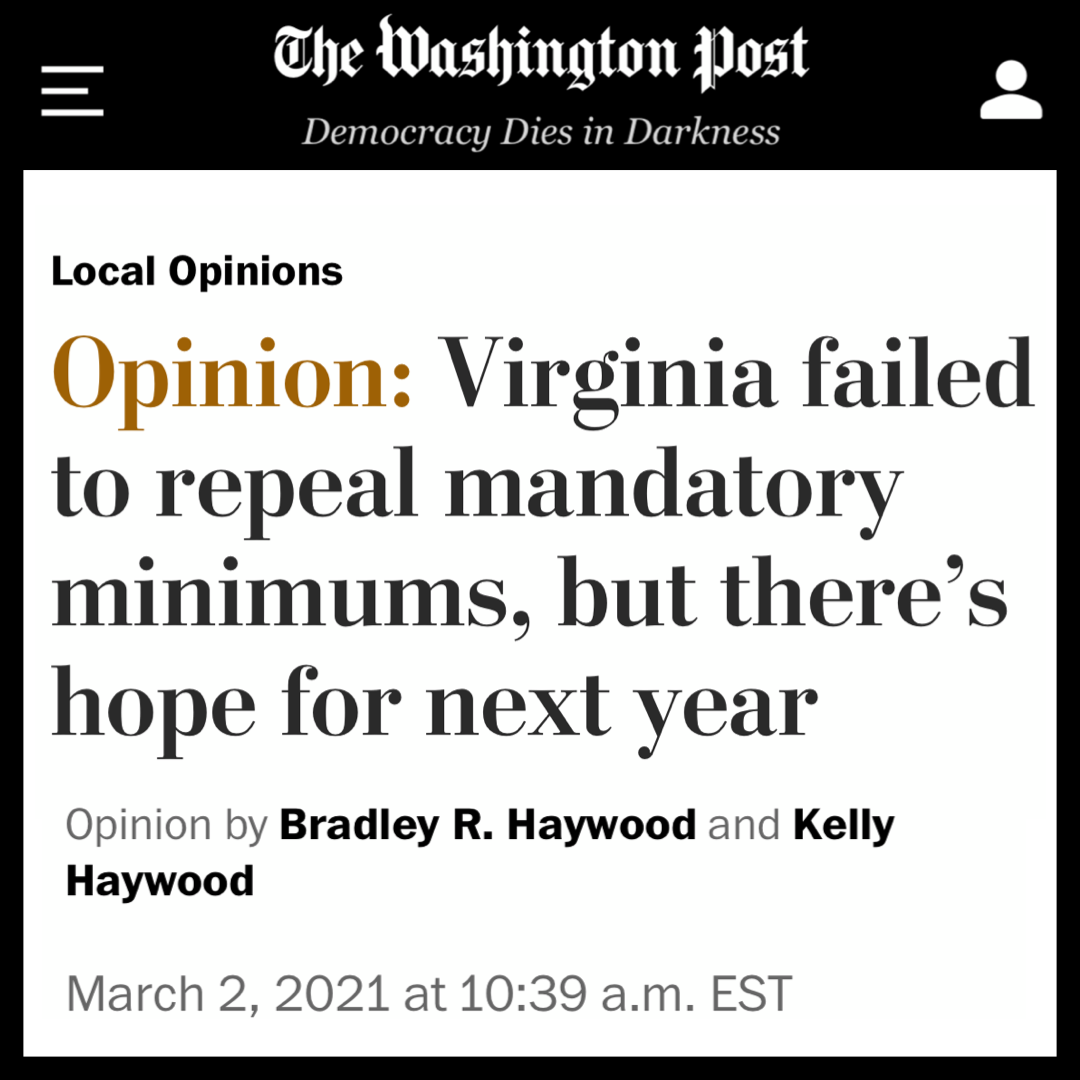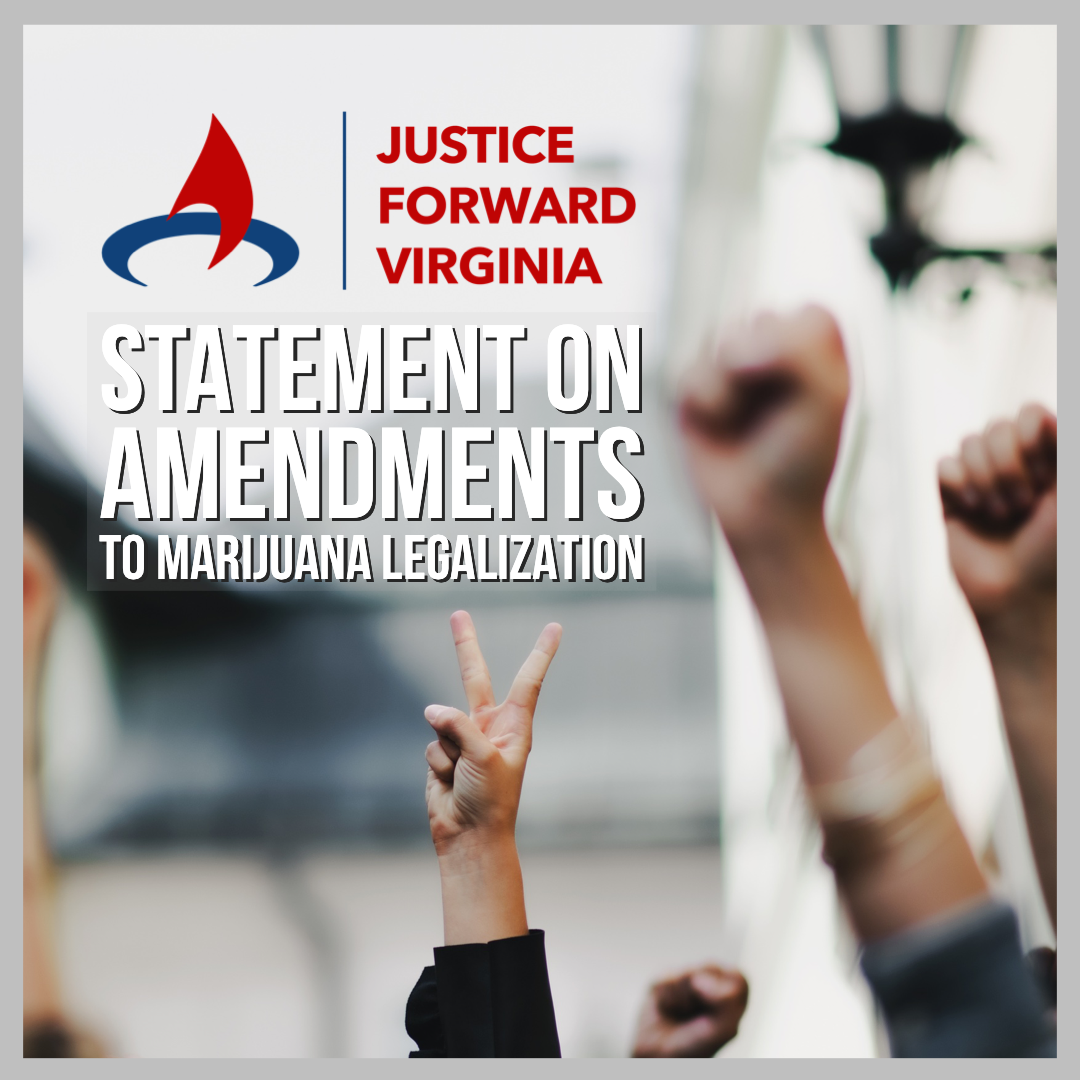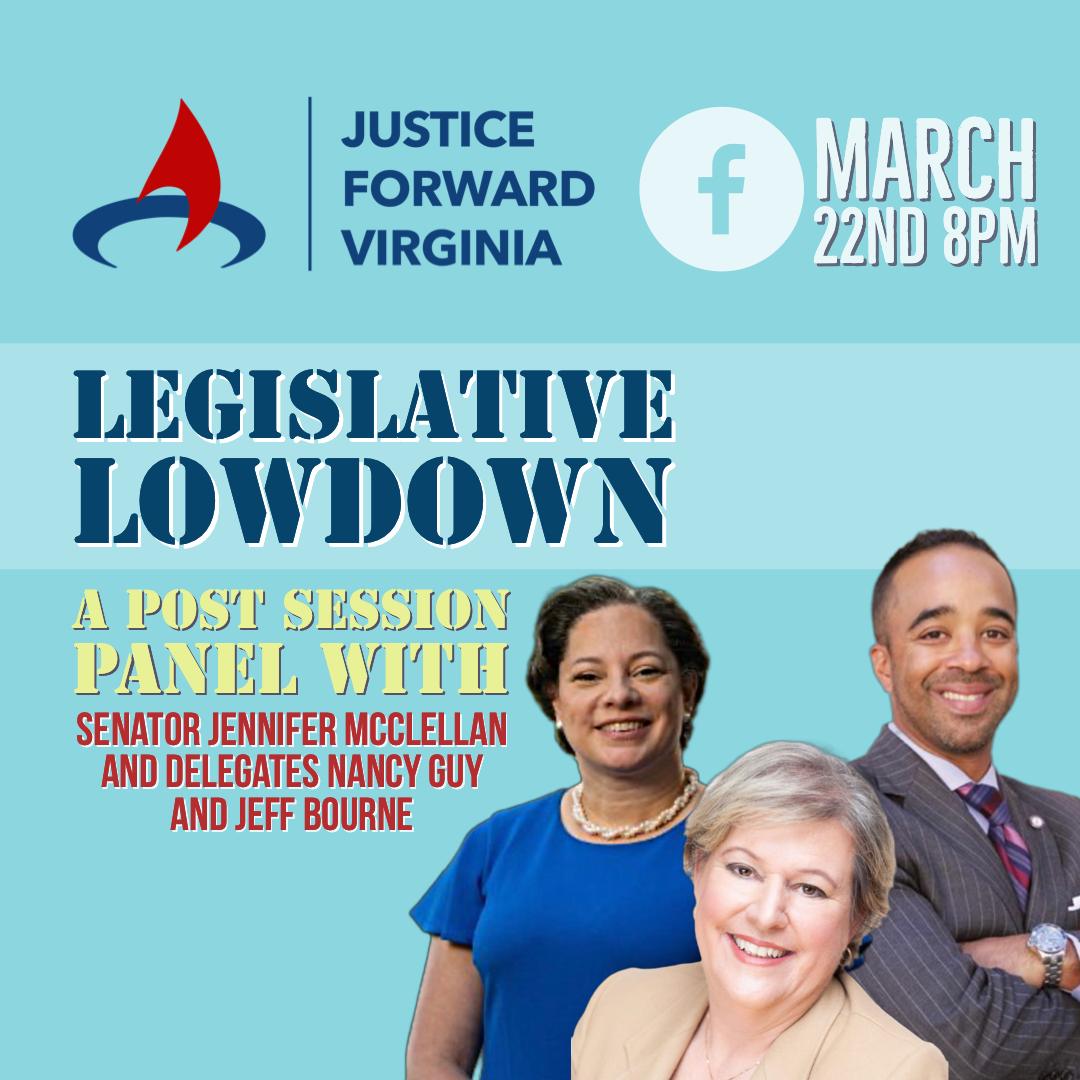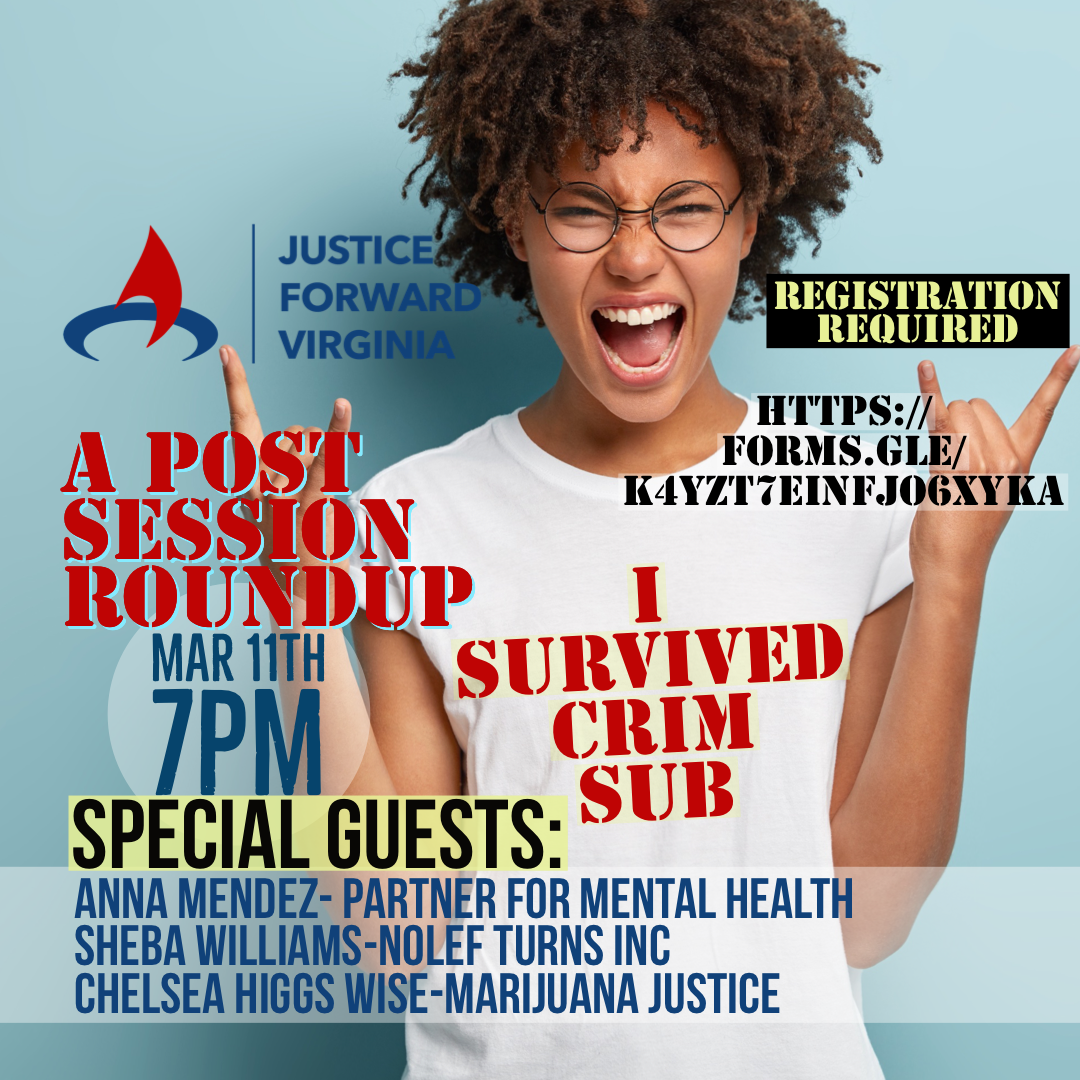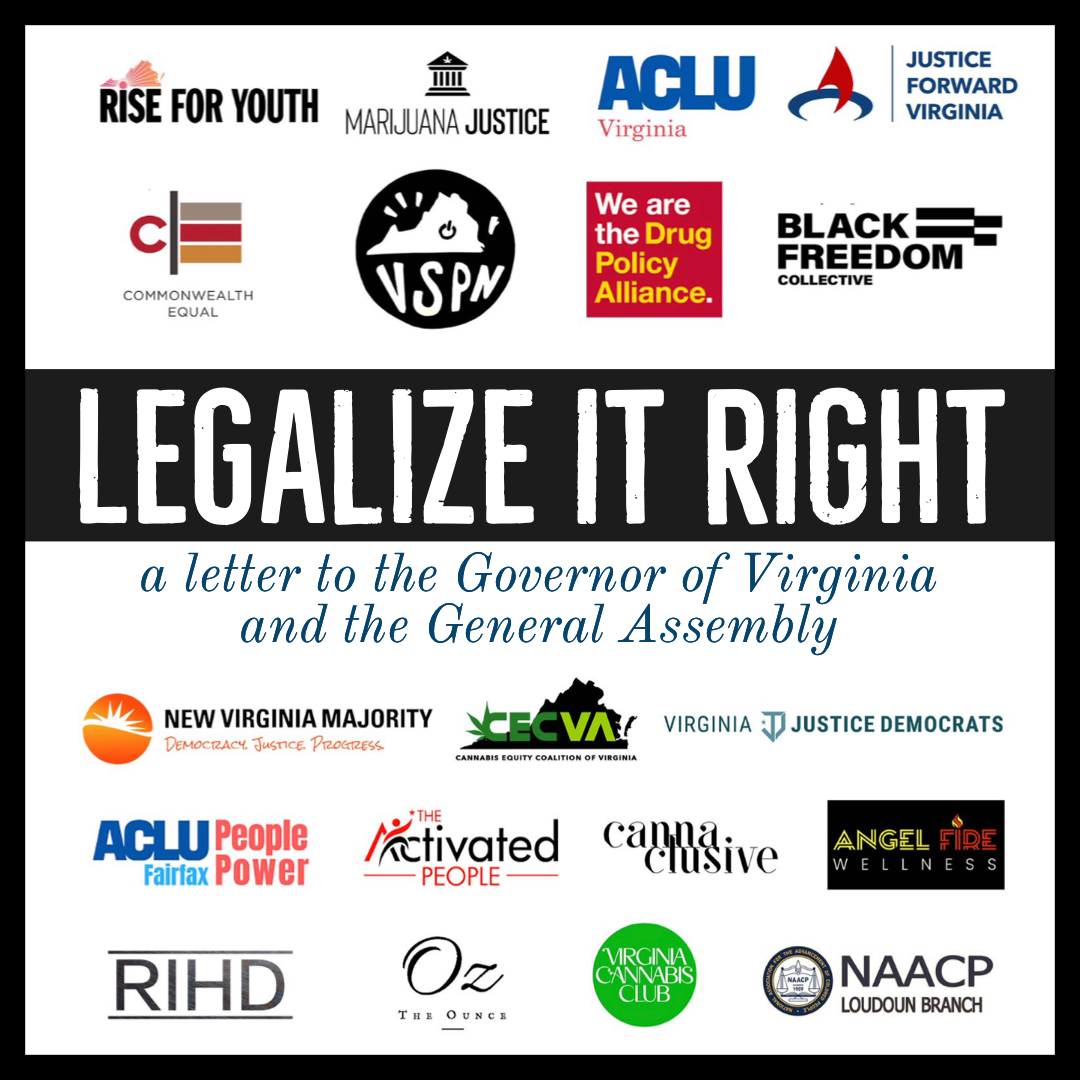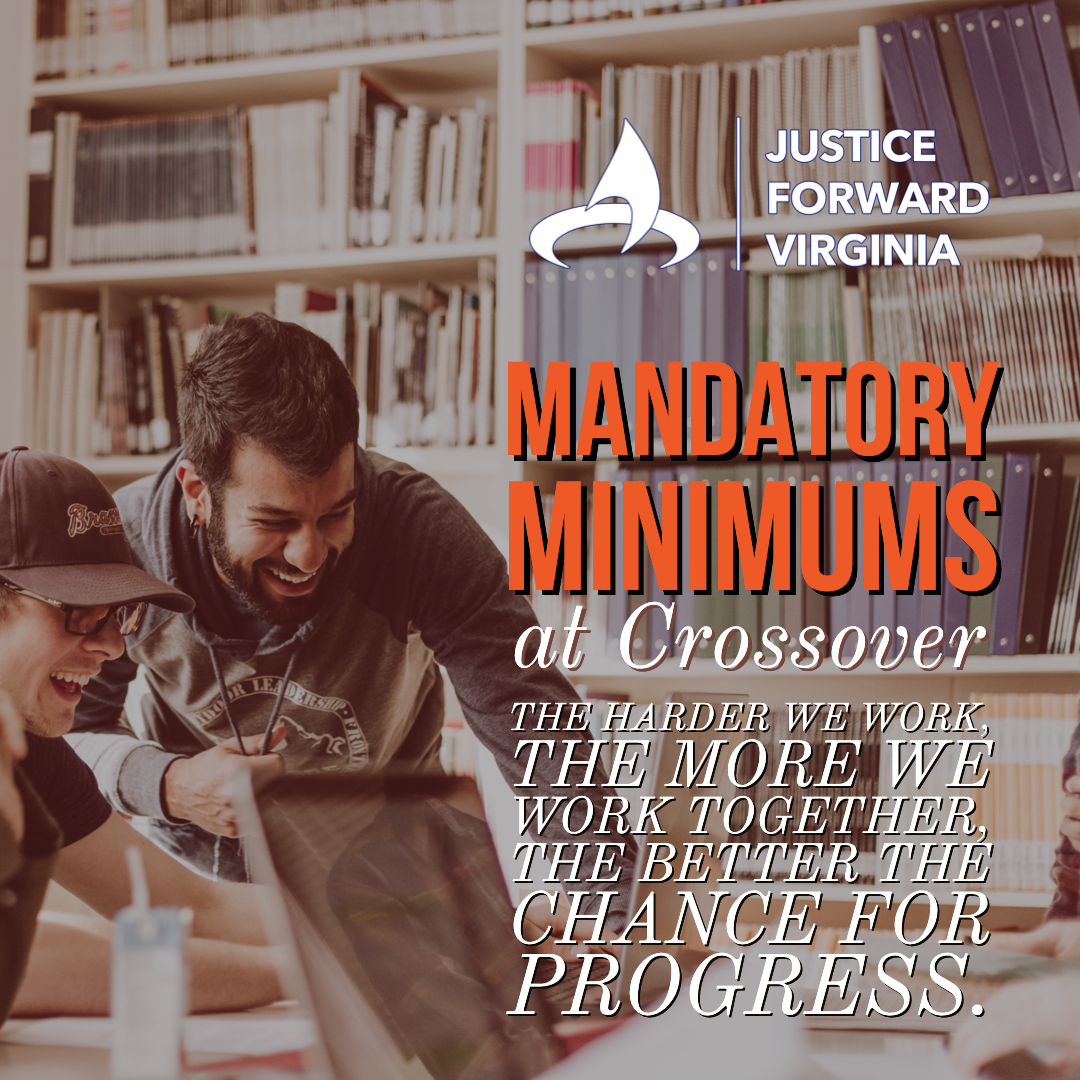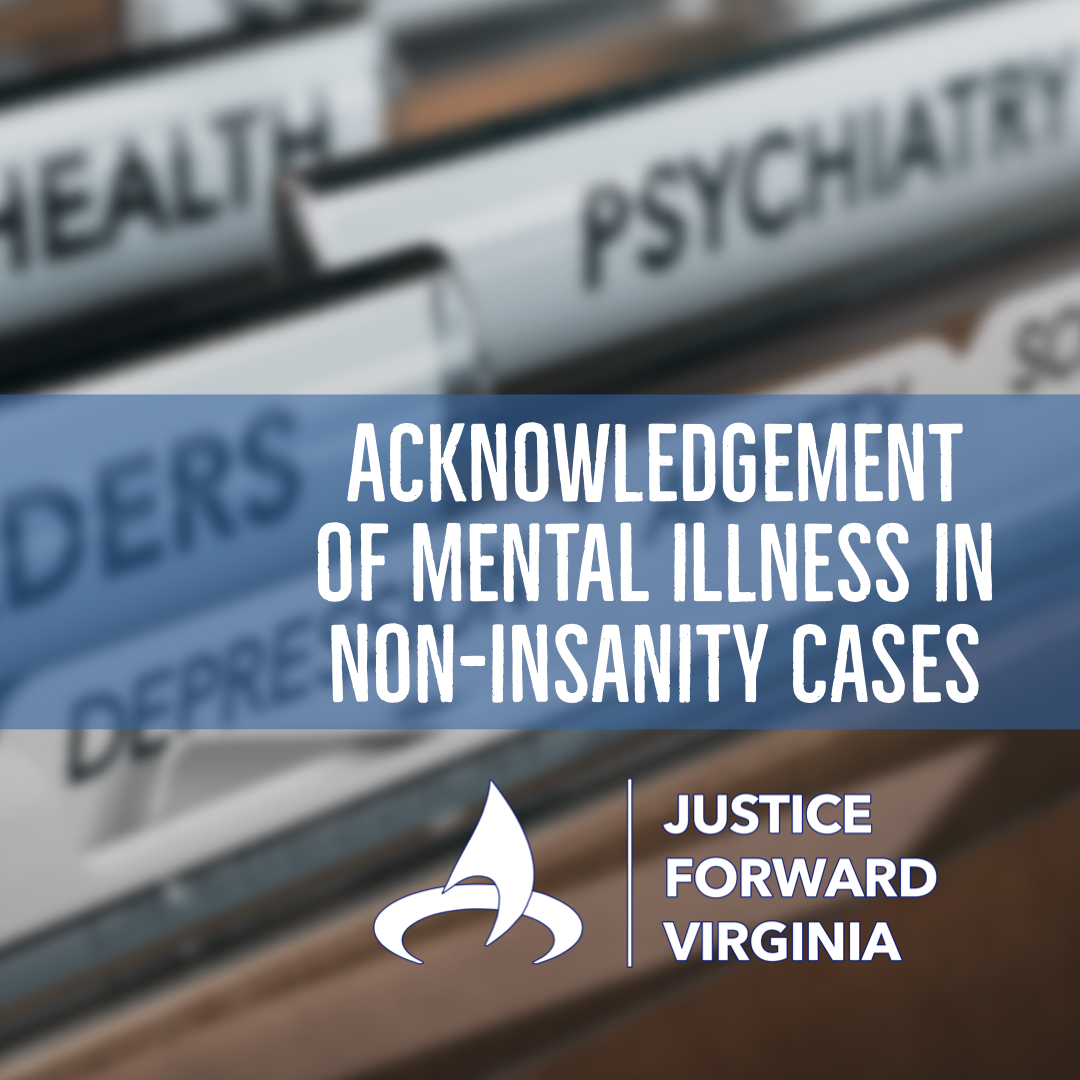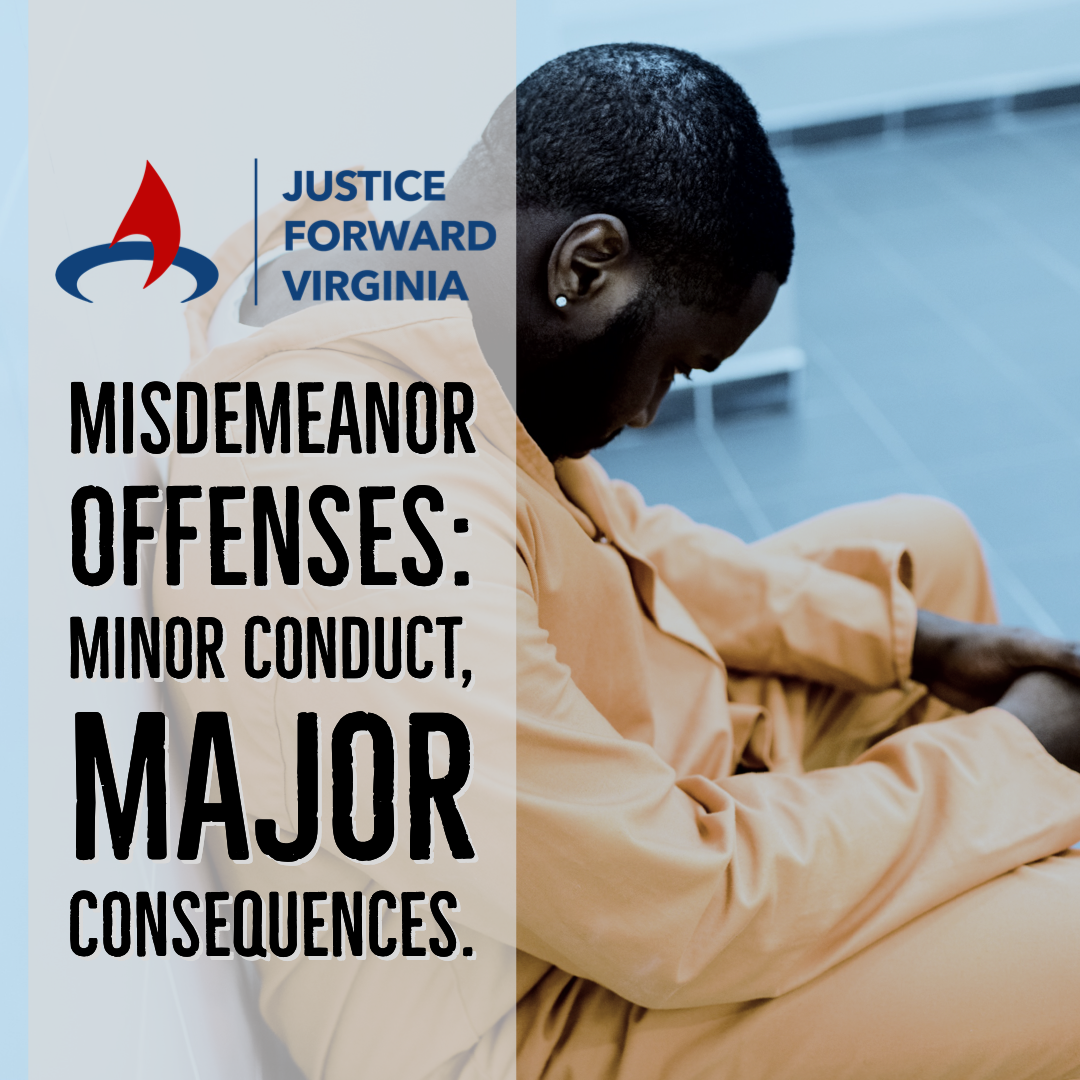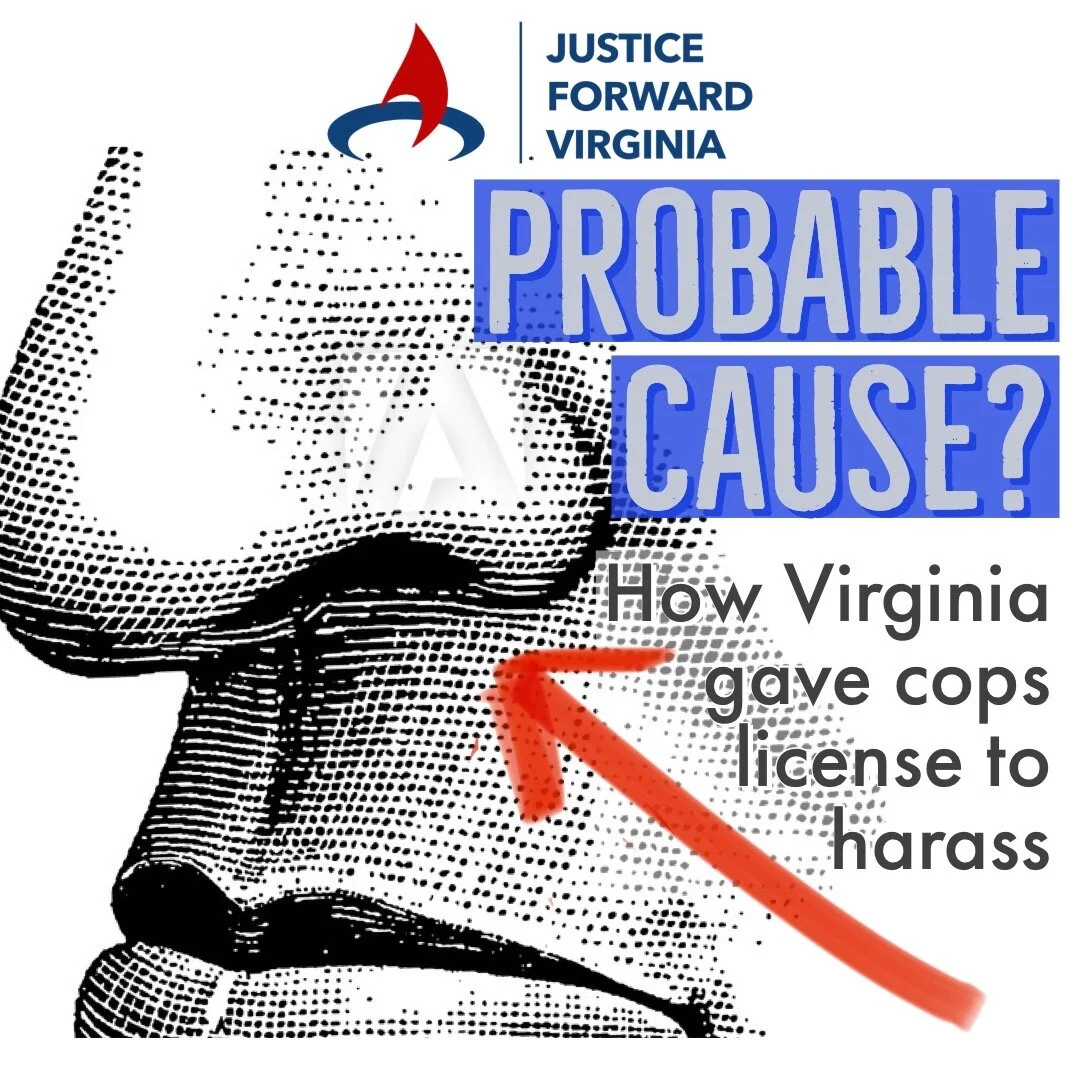Drug Policy
In 2021 the Virginia General Assembly voted to legalize possession of Marijuana starting in 2024. But the Governor changed the enactment date to July 1, 2021. Many of the details about the roll out are still be worked out, and a regulatory body is being stood up to oversee sales. For the time being it is not legal to sell marijuana.
While this crucial piece of marijuana legislation is a huge step toward racial justice, youth will continue to be punished more harshly than adults. The possession charges for young people, which remain in the marijuana bill, will feed the school-to-prison pipeline, and be used by courts as a gateway and result in too many Black and Brown youth being placed under probation and surveillance. Instead of punishment, young people should be evaluated for appropriate services that address the root causes of their usage. Failing to address the decriminalization of youth means that the work of legalizing marijuana right is not done. We will continue to advocate for youth justice and racial justice until marijuana legislation truly addresses past wrongs.
In addition to the work that remains related to marijuana legalization, reform efforts continue around the way courts treat “harder” drugs, which continue to be punished extraordinarily harshly in Virginia. Possession of mere residue of cocaine is a felony punishably by prison time. Sell one adderall pill to a classmate and you’re subject to a felony punishable by 5 to 40 years in prison. While the federal sentencing guidelines have been revamped to address overly punitive sentences for the possession or distribution of harder drugs, Virginia maintains an inflexible scheme of mandatory minimums, which when combined with liberal rules on "stacking" charges, can lead to egregious sentencing disparities. In 2021 legislation to defelonize drugs was killed in committee.
Although law enforcement in Virginia has ample resources for its drug interdiction efforts, alternatives to incarceration such as diversion, drug courts and drug treatment are woefully underfunded, and in many cases unavailable.
Virginia should start scaling back the War on Drugs in earnest by eliminating felony punishment for simple possession of all Schedule I and II drugs, by decriminalizing many more of them, and by codifying substantial pre-arrest diversion models that treat substance use disorders as a disease and public health problem, and not a crime.



